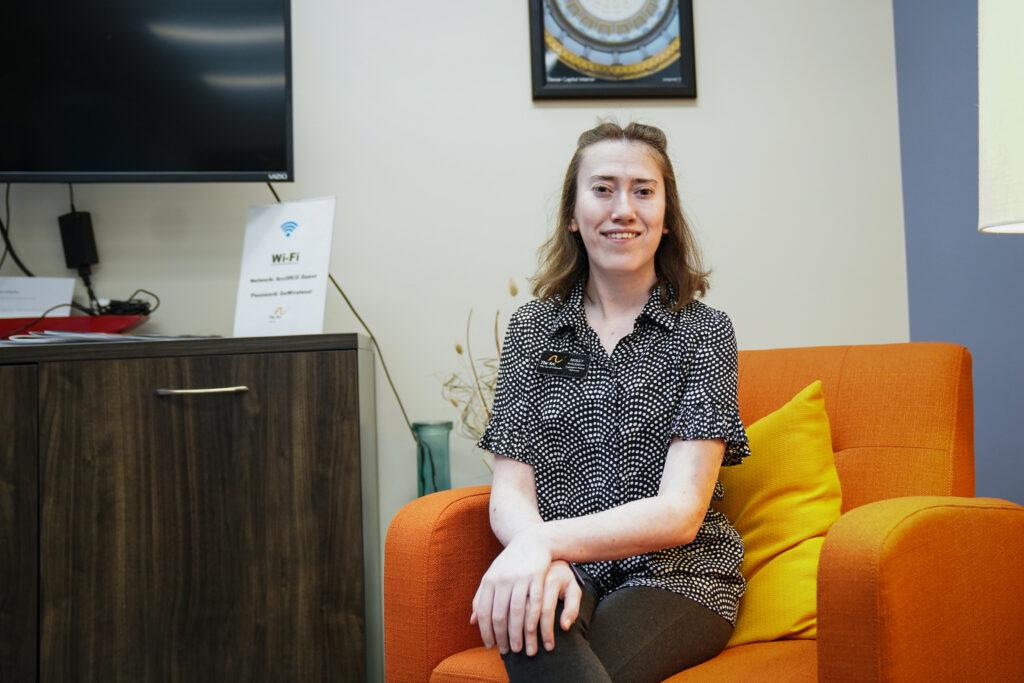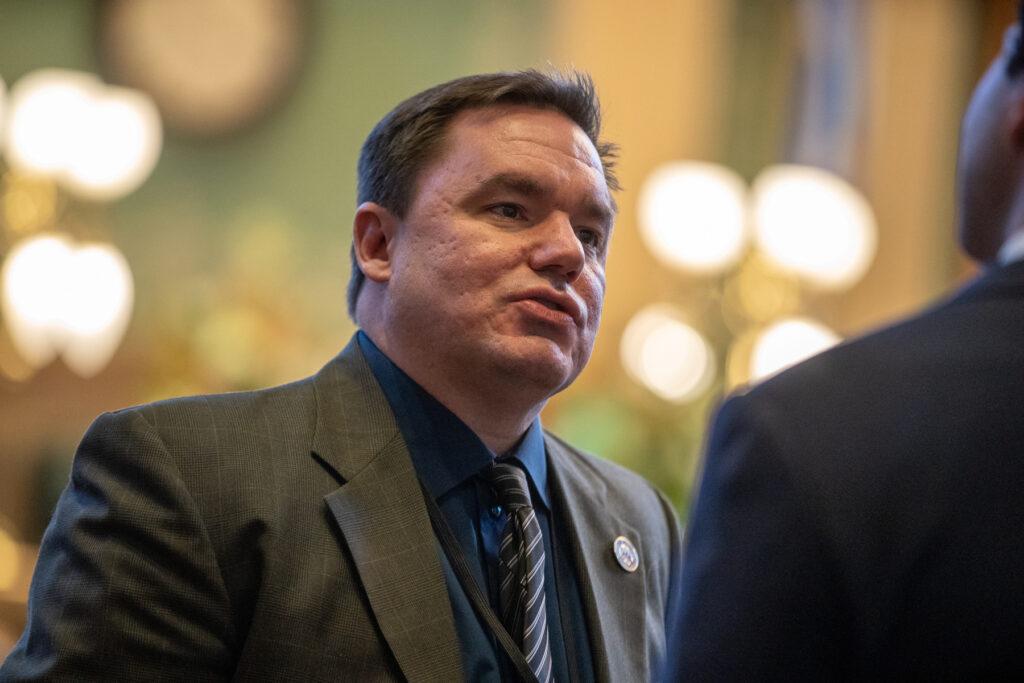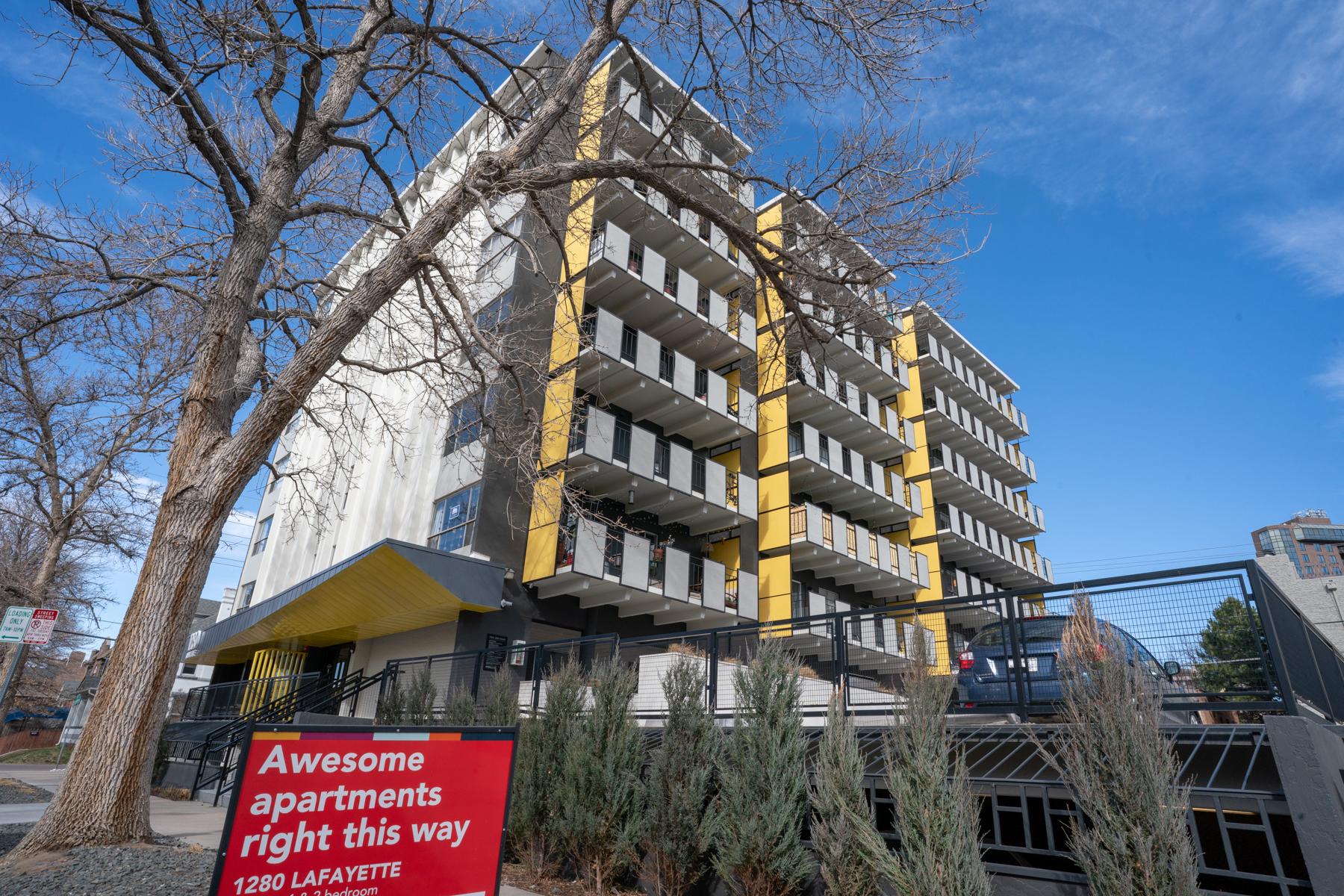
Molly Kirkham, who has a rare chromosomal condition, has been advocating for the disability community since elementary school.
“My big thing is to make good change and to break down stigma about people with disabilities,” she said. “It’s just about, if something is wrong, making sure you say something about it.”
She’s been speaking up quite a bit lately at the Colorado State Capitol, testifying in support of a bill that would codify a key disability rights protection into state law.
Kirkham and others have been working to pass House Bill 1017 to shore up the right of Colorado’s hundreds of thousands of people with disabilities to live independently, instead of in long-term care facilities. The bill enjoyed a lot of bipartisan support in both chambers, and cleared the Senate on Friday and appears to be on the verge of heading to the governor’s desk.
It’s an attempt to codify into state law the U.S. Supreme Court’s 1999 “Olmstead” decision. In that case, the Justices found that unnecessarily keeping a person in a long-term care facility counts as discrimination under the Americans with Disabilities Act, and that people with disabilities have a right to live and receive care at their own homes within their communities.
The case is considered by many as a bedrock in disability rights in the U.S. But some advocates worry this protection could now be in peril, thanks to recent Supreme Court rulings that have upended other longstanding federal precedents, including one that curtails federal agencies’ power to interpret ambiguous federal laws.
Kirkham is a legislative policy advocate for The Arc of Colorado, a nonprofit that advocates for the rights of people with intellectual and developmental disabilities. She has a sense of what life was like for a number of Americans with disabilities pre-Olmstead, thanks to her great aunt, who had disabilities and lived in an institution for about 15 years, till the age of 29.

Growing up, Kirkham heard stories about her great aunt’s time there, and recalls, “you could just see the fear and the anger” she carried throughout her life. The institution’s name became like a curse word for her great aunt, one she used “to describe how it made her feel.”
“What happened there was dehumanizing and not with dignity,” Kirkham told CPR News. “Institutions were not the right options because it just hid people away instead of letting people embrace disabilities and learn how to live with each other.”
Those experiences were a huge motivator for Kirkham to testify for House Bill 1017. She was joined in that effort by many other advocates and members of Colorado’s disability community.
“The thought of being placed in any form of institutionalized setting is unimaginable to me and I have yet to meet anyone who would choose such an environment over community integration,” Carson Covey, with Family Voices Colorado, told a Senate committee earlier this month. “It is essential to empower individuals with disabilities, including myself, to flourish within inclusive communities.”
Advocates also argued that helping people stay out of institutions could save the state money long-term.
States tend to see lower per-person Medicaid spending, on average, for those receiving care at home versus in a long-term care facility, according to Priya Chidambaram, a senior policy manager with KFF’s program on Medicaid and the Uninsured.
Those costs do vary depending on people’s different situations and whether they need 24/7 care.
“Over time we've seen this shift away from institutional care towards home- and community-based care, both because people prefer it, but also because states definitely see a financial benefit to it,” Chidambaram said, adding that the change can also be attributed to disability advocacy work to make home care more accessible and available.
An older ruling established the right to independent living, a newer one has the disability community concerned
While there appears to be no immediate threat to Olmstead, advocates are concerned that the Supreme Court has recently overturned other long-standing precedents that were “enshrined in court cases rather than in statute,” Kelly McCullough, co-legal director at Disability Law Colorado, said.
Last summer’s reversal of the 1984 decision in Chevron v. Natural Resources Defense Council was a tipping point for Disability Law Colorado. The earlier decision set up what was known as the Chevron doctrine, in which courts gave deference to a federal agency’s interpretation of a law, within reason, when Congress had not explicitly addressed the issue at question within the statute.
McCullough said that, without the Chevron doctrine, rights and protections for people with disabilities could be more vulnerable to challenges.
“There are a lot of places that case law is silent where administrative guidance can give both the person with the disability and the housing provider, the employer, the public accommodation certainty in what they can expect a court case to be if courts are relying on the guidance of those administrative agencies and deferring to their expertise,” she said.
Even without those concerns, Colorado was already in hot water with the U.S. Justice Department in recent years for allegedly not living up to its obligations under Olmstead. The DOJ and Colorado reached a settlement agreement over the issue last fall. And that’s also been a key driver for advocates of the bill.
“When it comes to meeting the needs of people with disabilities, “we are not getting five stars,” said Rep. Chad Clifford (D-Centennial), a main sponsor on the bill. “I don't know that we can get five stars, but it is our job to try.”

Under Olmstead, states must maintain a comprehensive plan for how it will ensure people with disabilities are integrated into their communities, including specific resources and funding. Colorado hasn’t updated its plan in more than a decade, and backers of this bill have said the current plan is too vague.
Under the bill, the Colorado Disability Opportunity Office would be tasked with researching and developing a new community integration plan by September 2028, and which it will then update every few years.
Clifford said this is the most important piece of legislation he’s working on this session.
“I am one small accident away from joining this community, or, if I live long enough, I certainly will appreciate that we have made the world accessible,” he said.
Gov. Polis’ press secretary, Shelby Wieman, said in an emailed statement that the governor’s office and state agencies have been working with the bill’s sponsors “to ensure that there are not unfunded liabilities.”
“The Governor is appreciative of those efforts,” Wieman said. “He will review the final legislation if it reaches his desk.”
The latest development in a state with history of disability activism
As the bill’s sponsors took care to remind their colleagues at the Capitol, Colorado has a significant place in the disability rights movement. That legacy includes the “Gang of 19,” wheelchair-using activists who blocked traffic in Denver in 1978 to fight for accessible buses and the advocacy group ADAPT, whose members took sledgehammers to sideways over lack of curb cuts and chained themselves to the buildings where lawmakers worked and decision-makers convened.
McCullough, with Disability Law Colorado, is frustrated, though, that groups like hers are having to reaffirm already-established rights, 35 years after the signing of the ADA.
“Instead of looking to expand, looking to move closer to living up to the full promise of the ADA, we're instead looking at this law — which I do think is important and wish we'd done it a long time ago because it does affirm the value and Colorado's commitment to that — but it's time and energy that could be used to try to expand and get more rights [for the disability community],” McCullough said.
Funding for public media is at stake. Stand up and support what you value today.









